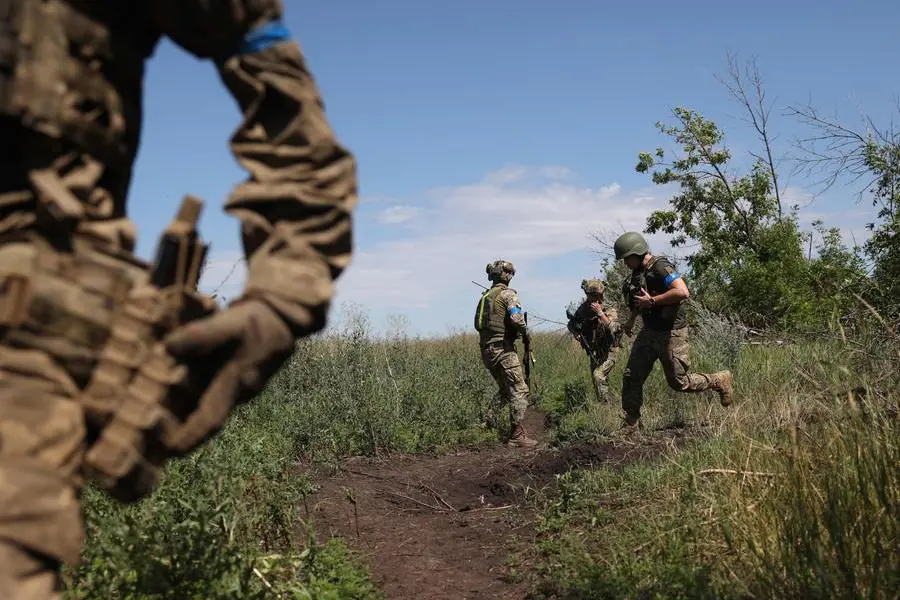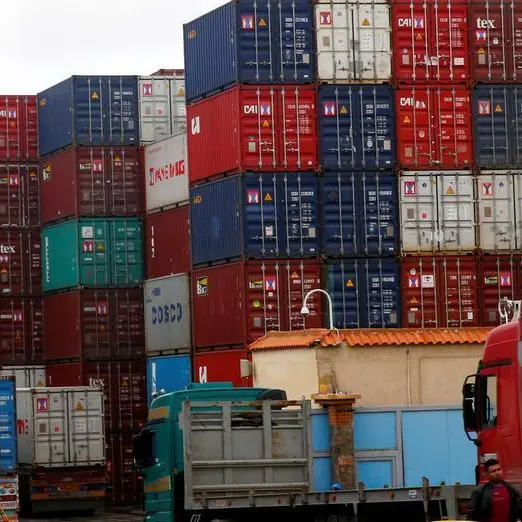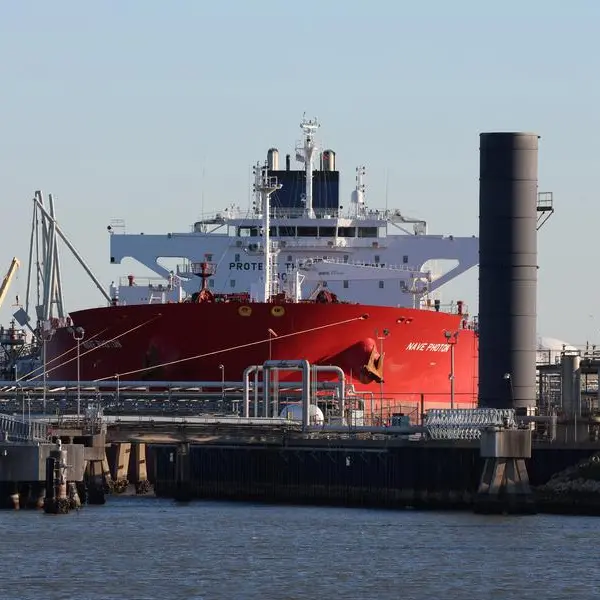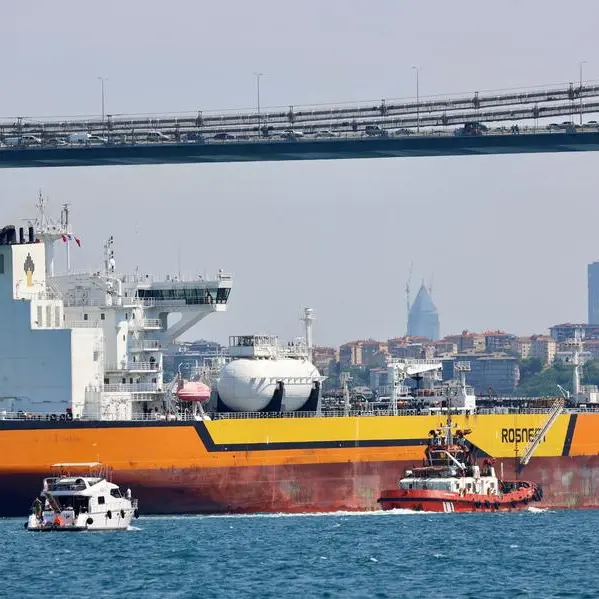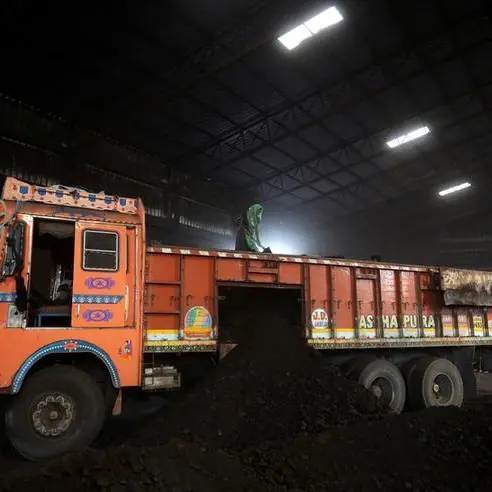PHOTO
The Ukrainian military on Monday said it had pushed Russian forces out of pockets of territory along front lines in the east and south of the country, building on a gruelling counter-offensive launched two months ago.
The gains -- announced by Ukraine's deputy defence minister -- came as Russia claimed its forces had progressed in the eastern Kharkiv region, undermining Kyiv's highly anticipated campaign.
Ukraine kicked off its counter-offensive against Russian forces in June after building up assault battalions and stockpiling Western-donated weapons.
But Kyiv has acknowledged that movement against heavily fortified Russian positions has been slow and said it had gained only a clutch of land around the war-battered city of Bakhmut last week.
"In the Bakhmut sector, three square kilometres (1.2 square miles) were liberated last week," Deputy Defence Minister Ganna Malyar told state television, adding that Ukrainian forces had clawed back 40 square kilometres there since June.
She explained that Ukrainian forces had been diverted from offensive operations around the town -- captured by Russian forces in May -- citing building Russian pressure in the Kharkiv region.
"It was important for the enemy to divert our forces in other directions, so we could not concentrate our forces for the offensive in the Bakhmut sector," Malyar said.
- Crossing the Dnipro -
Ukrainian forces have also been pressing against deeply entrenched Russian forces in the south of the country, in two regions the Kremlin said it had annexed last year.
Malyar said Kyiv's army had made gains in two villages on the southern front but also confirmed Ukrainian troops had conducted "certain tasks" on the left bank of the Dnipro river in the Kherson region.
The river was rendered the de facto front line between Ukrainian and Russian forces in the region after Kyiv recaptured the territory's main city, also called Kherson, in November.
Ukraine has urged its Western allies to ramp up arms deliveries, including long-range missiles and F-16 fighter jets to speed up its offensive.
That was the message Kyiv mayor Vitaliy Klitschko said he took to his meeting with Germany's Finance Minister Christian Lindner, who arrived in Kyiv on Monday.
"I emphasised that Ukraine is in dire need of the necessary armaments. These are air defence systems and long-range weapons," Klitschko wrote on social media.
Ukraine's claims of advances in the east came after its air force said it downed several waves of Russian missiles and drones targeting Odesa, the latest in a string of attacks in the southern region on the Black Sea coast.
- 'Endangering' Black Sea shipping -
Air defence forces repelled all the attacks but falling debris damaged a student dormitory and a supermarket in Odesa's city centre, wounding three workers, the army said.
"The blast wave damaged windows and balconies in several buildings and damaged cars parked nearby", it said, adding that firefighters were battling two blazes.
Images shared by the army showed firefighters trying to extinguish flames engulfing a multi-storey supermarket, with a large plume of smoke rising into the air.
Russia and Ukraine have stepped up attacks in the Black Sea since Moscow exited a deal last month that had granted Kyiv's grain exports safe passage during the conflict.
Since withdrawing from the agreement, Moscow has pounded ports in the Odesa region that were key for Ukrainian grain exports under the deal.
The overnight missile and drone attacks come a day after Moscow said warning shots were fired from a Russian warship at a cargo vessel heading towards Izmail, a city on the Danube river in Odesa.
The Russian ship spotted the Sukru Okan cargo vessel sailing under the flag of Palau and fired the shots after its captain did not respond to demands to stop.
After inspection, the cargo ship was allowed to continue its journey.
"These actions exemplified Russia's deliberate policy of endangering the freedom of navigation and safety of commercial shipping in the Black Sea," Ukraine's foreign ministry said on Monday, accusing Moscow of breaching United Nations accords and norms of international law.
Russia struck port infrastructure in Izmail, one of the main export routes for Ukrainian agricultural products to neighbouring Romania.
